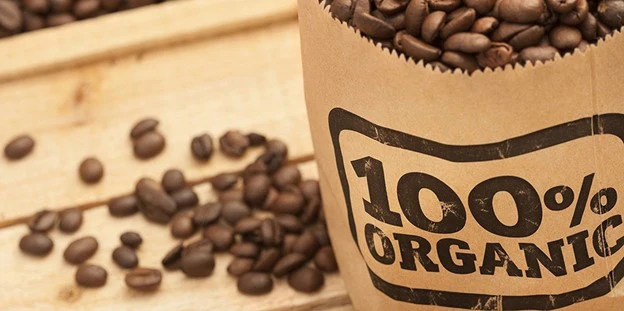
P.C.: Salt of the Earth
As in recent years, the demand and consumption of coffee increased, so did the evolution in farming methods.
Organic coffee gained massive popularity among consumers as it is produced without the aid of chemical substances such as certain additives or pesticides. Many factors are taken into attention when coffee is considered for organic certification. For instance, the coffee farm’s fertilizer must be 100% organic.
Since it is grown without harmful pesticides, herbicides or fungicides, organic coffee is often described as healthier than its conventional counterparts. Yet many argue that it falls short when it comes to standards that are necessary for a truly healthy cup of coffee.
How is it different from regular coffee?
Organic Vs Conventional coffee is by far the most prominent debate in the coffee industry. On one side are organic advocates, who believe in preserving the plant and animal ecosystems where coffee is grown by limiting the types of chemicals that can be used on the farm.
On the other side are non-organic enthusiasts, who generally acknowledge the environmental benefits of organic production, but make a point of highlighting the pressure it puts on coffee producers, who are by far the most financially unstable and vulnerable people in the coffee chain.

P.C.: Chang Puak Magazines & Maps
This pressure stems from the combination of certification costs as well as the very risk that disease and fungus pose to their crops. Though organic pesticides and fungicides can fight some of those threats, they cannot fight them all.
The other major difference between organic and regular coffee is the price. Regular coffee is mostly mass-produced coffee beans. It is easily available just about anywhere. You can find it at a local food shop or in a nearby convenience store.
On the contrary, to date, organic coffee is about 3 per cent of the total coffee production. It’s a small number. Therefore, the price is highly dictated by the producers.
Does Organic coffee taste better than regular coffee?
The answer to this is YES, many believe one organic coffee may taste better than a conventional bean, while some others think a regular brew will taste worlds better than an organic blend.
It is widely believed that coffee that ripens more slowly develops a richer, more complex flavour. Therefore, high-altitude coffee is so highly prized.
Though, the difference is subtle and depends on the preference of the drinkers. Some explain the taste as being cleaner than regular coffee, while others swear that it’s smoother. But the only way to know for sure is to taste each type for yourself!
Is organic coffee better for you?
Although being organic does not necessarily mean nutritious, it is better than regular coffee. Many argue that farming regular coffee poses a significant risk to farmers and the environment. Unlike non-organic coffee, most organic coffee is grown in the shade of rich forests.
Forested coffee farms sustain soil fertility, keep regional ecosystems alive, and cope with unusual weather patterns better, making them a safer investment for farmers.
From a health perspective, organic coffee is high in antioxidants, vitamins, and minerals, such as riboflavin, pantothenic acid, and niacin, as well as other nutrients like potassium, manganese, and magnesium.
Coffee enhances the immune system and helps in protecting the body against disease. Organic coffee typically tastes better. It grows in higher altitudes where it takes longer to develop results in a richer flavour many coffee drinkers can distinguish. Irrespective of what chemicals were used in a conventional coffee’s production, no signs have ever been found to be present in the final cup.
Conclusion:
Though there is no evidence drinking conventional coffee is more harmful, people prefer organic to be on the safe side. If price is your main concern when buying coffee, you will prefer regular coffee. Nevertheless, in time, the price will also go down for organic coffee as more coffee farmers opt for organic farming.